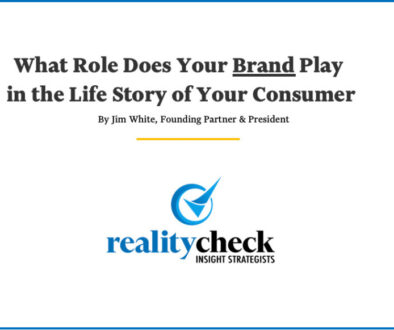Why the Trump Brand Will Win in November
As someone who has been working on brands for 20 years, I think Donald Trump will win the presidency in November. Why? He’s built a better brand than Hillary Clinton. Love him or hate him, brand marketers can learn a lot from Trump’s campaign. Here are 4 important lessons.
- The Trump brand has created a compelling enemy
Donald Trump has gotten this far largely because he has created the specter of an enemy that his followers fear (Muslim and Mexican Immigrants), and positioned himself as the only candidate who can fight it. Enemy construction is one of the oldest campaign strategies in the book and one that brand marketers can learn from. Ronald Reagan used it to deft effect in the 1980’s (the Soviet Union was his enemy), and Bill Clinton did so in the 90’s (His enemy? “It’s the economy, stupid.”) Whether you agree with the righteousness of Trump’s enemy construction is beside the point. For any brand – political or otherwise – it is an effective strategy. Brands that have enemies instill passion. They are on a mission, a crusade, and they fight on behalf of their consumer.
Does your brand have an enemy it alone can save people from? If not, it should. - The Trump brand makes emotional connections
As much as we’d like to believe we are rational, thoughtful creatures, we are not. Emotion drives the choices we make in the voting booth and in the supermarket aisle. What we know is processed in the context of what we feel. What do many Americans feel right now? Fear. Anger. Resentment. Neglect. What do they want to feel? Security. Empowerment. To be heard. Trump hasn’t campaigned on facts, policy positions or reason. He has campaigned on emotion. Hillary, by comparison, is running a dangerously wonkish campaign. Her inability to connect emotionally may be her downfall.
Does your brand connect on an emotional level? If not, it should. - The Trump brand tells a clear, singular story
Consumers and voters are drawn to brands that offer a clear, easy-to-understand story of what they stand for. If people have to spend more than a few seconds trying to figure out what your brand is about, you will lose them.
For a lesson in what NOT to do along these lines, look no further than the Republican Party.
The RNC has suffered from an unclear brand story for several years. Starting with the Tea Party’s challenge to mainstream Republicans and continuing through Trump’s nomination, it is unclear to many voters what the Republican brand stands for.
The Trump brand, however, tells a very clear, singular story. It goes like this. America is no longer great but Trump will make it great again. Why? Because he’s the greatest businessman ever. Whether you believe this story or not is irrelevant. The point is that any American who hasn’t been living under a rock knows this story. The clarity of this story is why Trump so easily dispatched mainstream Republican candidates like Jeb Bush in the primary. Voters knew what the Trump brand stood for. But few could tell you what the Republican brand – represented by Bush – was all about. Hillary has a similar lack of clarity. Ask 10 voters what Hillary stands for and you’re likely to get 10 different answers. That’s a problem.
Does your brand have a simple, singular story to tell? If not, it should.
- The Trump brand demonstrates empathy
Trump supporters believe he understands them in a way that mainstream politicians do not. Why? Because he speaks and acts in ways that suggest empathy. How many times have you heard Trump supporters say something like “He says what people really think.” Well, it might not be what you think. But it is what his supporters think. The lower-educated, white male voters who make up Trump’s base feel judged and belittled by just about everyone… everyone but Trump. He hears them and gives them a voice. And in doing so, he demonstrates empathy for them.
Does your brand demonstrate empathy for its consumers? If not, it should.
So there you have it. Four reasons why Trump will win, like it or not. But let me know what you think.























